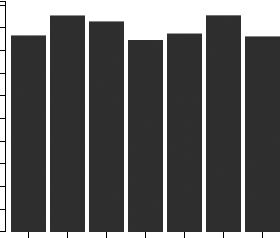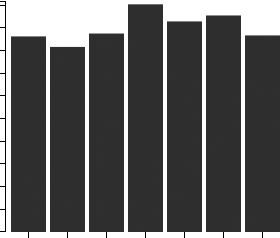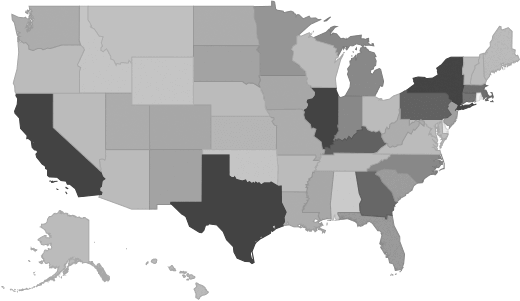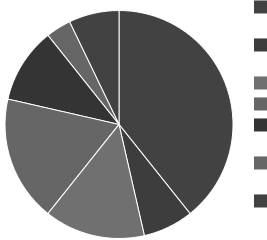Radio Broadcasting Industry - Market Research Report
Industry Overview
This industry comprises establishments primarily engaged in broadcasting audio signals. These establishments operate radio broadcasting studios and facilities for the transmission of aural programming to the public, to affiliates, or to subscribers. The radio programs may include entertainment, news, talk shows, business data, or religious services.
Source: U.S. Census BureauMarket Size and Industry Forecast
This research report analyzes the market size and trends in the Radio Broadcasting industry. It shows overall market size from 2020 to the present, and predicts industry growth through 2030. Revenues data include both public and private companies.
| Historical | Forecasted |
|---|
| 2020 | 2021 | 2022 | 2023 | 2024 | 2025 | 2026 | 2027 | 2028 | 2029 | 2030 |
|---|
| Market Size (Total Revenue) | Included in Report |
| % Growth Rate |
| Number of Companies |
| Total Employees |
| Average Revenue per Company |
| Average Employees per Company |
Source: U.S. government financial dataIndustry Revenue ($ Billions)

Industry Forecast ($ Billions)

Advanced econometric models forecast five years of industry growth based on short- and long-term trend analysis. Market size includes revenue generated from all products and services sold within the industry.
Geographic Breakdown by U.S. State
Market size by state reveals local opportunity through the number of companies located in the region. Each state's growth rate is affected by regional economic conditions. Data by state can be used to pinpoint profitable and nonprofitable locations for Radio Broadcasting companies in the United States.
Radio Broadcasting Revenue by State

Distribution by Company Size
| Company Size | All Industries | Radio Broadcasting |
|---|
| Small Business (< 5 Employees) | Included |
| Small Business (5 - 20) |
| Midsized Business (20 - 100) |
| Large Business (100 - 500) |
| Enterprise (> 500) |
Radio Broadcasting Industry Income Statement (Average Financial Metrics)
Financial statement analysis determines averages for the following industry forces:
- Cost of goods sold
- Compensation of officers
- Salaries and wages
- Employee benefit programs
- Rent paid
- Advertising and marketing budgets
The report includes a traditional income statement from an "average" company (both public and private companies are included).
| Industry Average | Percent of Sales |
|---|
| Total Revenue | Included |
| Operating Revenue |
| Cost of Goods Sold (COGS) |
| Gross Profit |
| Operating Expenses |
| Operating Income |
| Non-Operating Income |
| Earnings Before Interest and Taxes (EBIT) |
| Interest Expense |
| Earnings Before Taxes |
| Income Tax |
| Net Profit |
Average Income Statement

Cost of Goods Sold
Salaries, Wages, and Benefits
Rent
Advertising
Depreciation and Amortization
Officer Compensation
Net Income
Financial Ratio Analysis
Financial ratios allow a company's performance to be compared against that of its peers.
| Financial Ratio | Industry Average |
|---|
| Profitability Ratios | Included |
| Profit Margin |
| ROE |
| ROA |
| Liquidity Ratios |
| Current Ratio |
| Quick Ratio |
| Activity Ratios |
| Average Collection Period |
| Asset Turnover Ratio |
| Receivables Turnover Ratio |
| Inventory Conversion Ratio |
Products and Services Mix
Product lines and services in the Radio Broadcasting industry accounting for the largest revenue sources.
| Product Description | Description | Revenue
($ Millions) |
|---|
| Industry total | Included |
| Radio broadcasting - air time |
| Local advertising (net) |
| National & regional advertising (net) |
| Programs |
| Public & non-commercial programming services - radio |
| All other operating receipts |
| All other receipts |
| Network compensation |
| Television broadcasting - air time |
Salary information for employees working in the Radio Broadcasting industry.
| Title | Percent of Workforce | Bottom Quartile | Average (Median) Salary | Upper Quartile |
|---|
| Management Occupations | 7% | Included |
| Chief Executives | 0% |
| General and Operations Managers | 4% |
| Arts, Design, Entertainment, Sports, and Media Occupations | 53% |
| Entertainers and Performers, Sports and Related Workers | 9% |
| Actors, Producers, and Directors | 8% |
| Producers and Directors | 8% |
| Media and Communication Workers | 33% |
| Announcers | 26% |
| Radio and Television Announcers | 26% |
| Media and Communication Equipment Workers | 10% |
| Broadcast and Sound Engineering Technicians and Radio Operators | 10% |
| Broadcast Technicians | 8% |
| Sales and Related Occupations | 20% |
| Sales Representatives, Services | 18% |
| Advertising Sales Agents | 17% |
| Advertising Sales Agents | 17% |
| Office and Administrative Support Occupations | 13% |
Government Contracts
The federal government spent an annual total of
$4,487,642 on the radio broadcasting industry. It has awarded 225 contracts to 65 companies, with an average value of $69,041 per company.
Top Companies in Radio Broadcasting and Adjacent Industries
| Company | Address | Revenue
($ Millions) |
|---|
Included |



